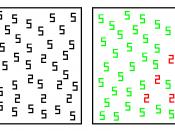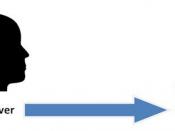Is indirect realism a plausible theory of perception?
What are you directly aware of whilst reading this passage? Is it the paper and ink that form the words? Or is it something more abstract, something intangible, something internal?
According to indirect realism you are perceiving sense data, an 'idea' of this passage which is caused by the paper and ink, a mental image which resembles the material object's properties (primary at least). In the following pages I shall examine the arguments for and against such a theory of perception.
The direct realist's theory of perception says that to perceive an object is to perceive it directly, through no medium. Direct realism seems to suggest that the following statements hold true;
there exists a world of material objects
we can learn of the nature and properties of these objects through sense-experience
we perceive the object directly, we are acquainted with the object itself
we can, in most cases, be sure of our claim to possess knowledge of the external world.
When appealing purely to common sense, then all of these initial statements appear to be fairly sound and obvious. However if we look at a certain situation where perception in this manner seems to be fallible, then doubt begins to encroach on the validity of these statements. The situations of which I speak are illusions. Perceptual illusion is where objects are conveyed to us falsely, when we see an object in a certain manner which does not represent its true form. An example of such an instance would be an optical illusion. The second, and more extreme, case of illusion is perceptual hallucination. Perceptual hallucination is where we perceive an object which, in fact, is not there to be perceived (as opposed to misperceiving the properties of an object which is...


